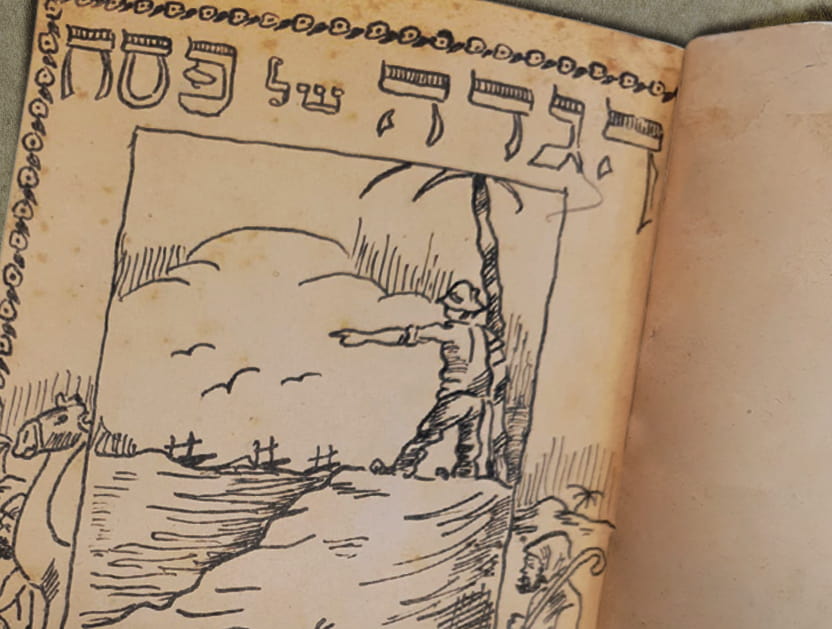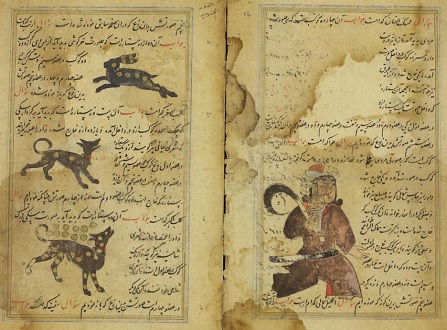"Orientalism and the Figure of the Jew proposes a new way of understanding modern German Orientalism in particular and modern Orientalism in general. To do so, it traces a path of modern Orientalist thought in German across crucial writings from the late eighteenth to the mid twentieth centuries, texts by Herder, F. Schlegel, Goethe, Hegel, Schopenhaer, Buber, Kafka, and Freud. It argues first of all that Orientalism and anti-Judaism are inextricably entangled. It suggests, further, that we misconstrue modern Orientalism if we see it exclusively as an expression of superior Western "material" power. Rather, while the modern West certainly asserts "material" power in the East, this self-assertion is overdetermined by a "spiritual" weakness of sorts: by an anxiety about the absence of absolute foundations and values that coincides with Western modernity itself. ; The book shows how the modern--here, German--West posits the Oriental "origin" as a fetish to fill the absent place of lacking foundations. Orientalism thus has the structure of (Freudian-Lacanian) disavowal. But a fetish always needs to be made mine. This particular fetish--the fetish of the Eastern "origin"--Is appropriated as Western by means of the displaced, quasi-secularized application of Christian typology. The Orient now prefigures its Occidental realization as Judaism once prefigured its Christian fulfillment. This structure of appropriation entails, however, that the Orient is always double, divided into an inappropriable, "bad" Orient and an appropriable, "good" Orient, just as in Christian typology prefigural Judaism was haunted by its irredeemably material, pagan double. This splitting of the Orient appears in the German tradition--but not just there--especially as the Semite-Aryan couple. ; The book traces variations on this theme through historicist texts of the nineteenth century, and then shows how high modernists like Buber, Kafka, Mann, and Freud place this historicist narrative in question. After a discussion of Orientalist dimensions in contemporary German culture, the book concludes with the outlines of a cultural historiography that would distance itself from the metaphysics of historicism, confronting instead its underlying anxieties"--Provided by publisher. ; "This book demonstrates the inextricable entanglement of Orientalism and anti-Judaism in modern German letters. It shows how historicist narratives posit the Orient as fetish in lieu of absent origins, then appropriate this fetish by applying to the East-West relation the Christian supercessionist typology earlier developed to construe the Jewish-Christian relation"--Provided by publisher. ; Traces modern Orientalist thought in general, and in Germany in particular, from the late 18th century to the mid-20th - e.g texts by Herder, Schlegel, Goethe, Hegel, Schopenhauer, Buber, Kafka, and Freud. Demonstrates the inextricable entanglement of Orientalism and anti-Judaism in German writings. Shows how historicist narratives posit the Orient as fetish in lieu of absent origins, then appropriate this fetish by applying to the East-West relation the Christian supersessionist typology earlier developed to construe the Jewish-Christian relation. Concludes with the outline of a cultural historiography that would distance itself from the metaphysics of historicism, confronting instead its underlying anxieties. (From the Bibliography of the Vidal Sassoon International Center for the Study of Antisemitism - The Hebrew University of Jerusalem)
| כותר |
Orientalism and the figure of the Jew / Jeffrey S. Librett. |
|---|---|
| מהדורה |
First edition. |
| מוציא לאור |
New York : Fordham University Press |
| שנה |
2015 |
| הערות |
Includes bibliographical references and index. |
| הערת תוכן ותקציר |
Introduction: Orientalism as Typology, or How to Disavow the Modern Abyss -- Part I. Historicist Orientalism: Transcendental Historiography from Johann Gottfried Herder to Arthur Schopenhauer. 1. Ordering Chaos: The Orient in J.G. Herder's Teleological Historicism 2. Figuralizing the Oriental, Literalizing the Jew: From Letter to Spirit in Friedrich Schlegel's On the Language and Wisdom of the Indians 3. Goethe's Orientalizing Moment (I): "Notes and Treatises for the Better Understanding of the West-East Divan" 4. Goethe's Orientalizing Moment (II): The Poetry of the West-East Divan 5. Thresholds of History: India and the Limits of Europe in Hegel's Lectures on the Philosophy of History 6. Taking Up Groundlessness, Fulfilling Fulfillment: Schopenhauer's Orientalist Metaphysics between Indians and Jews -- Part II. How Not to Appropriate Orientalist Typology: Some Modernist Responses to Historicism. 7. Dialectical Development or Partial Construction? Martin Buber and Franz Kafka 8. The Dreamwork of History: Orientalism and Originary Disfiguration in Freud's Moses and Monotheism -- Conclusion: For an Abstract Historiography of the Nonexistent Present. |
| היקף החומר |
xv, 357 pages : illustrations 23 cm. |
| שפה |
אנגלית |
| מספר מערכת |
990037939480205171 |
תנאי השימוש:
איסור העתקה
יתכן שאסור להעתיק את הפריט ולהשתמש בו עבור פרסום, הפצה, ביצוע פומבי, שידור, העמדה לרשות הציבור באינטרנט או באמצעים אחרים, עשיית יצירה נגזרת של הפריט (למשל, תרגום, שינוי היצירה או עיבודה), בכל צורה ואמצעי, לרבות אלקטרוני או מכני, ללא הסכמה מראש מבעל זכות היוצרים ומבעל האוסף.
לבירור אפשרות שימוש בפריט, יש למלא טופס בקשה לבירור זכויות יוצרים
מידע נוסף: הפריט עשוי להיות כפוף לזכויות יוצרים ו/או לתנאי הסכם.
אם לדעתך נפלה טעות בנתונים המוצגים לעיל או שקיים חשש להפרת זכות יוצרים בפריט, אנא פנה/י אלינו באמצעות טופס בקשה לבירור זכויות יוצרים
תצוגת MARC
יודעים עוד על הפריט? זיהיתם טעות?

 כניסה עם גוגל
כניסה עם גוגל
 כניסה עם פייסבוק
כניסה עם פייסבוק



